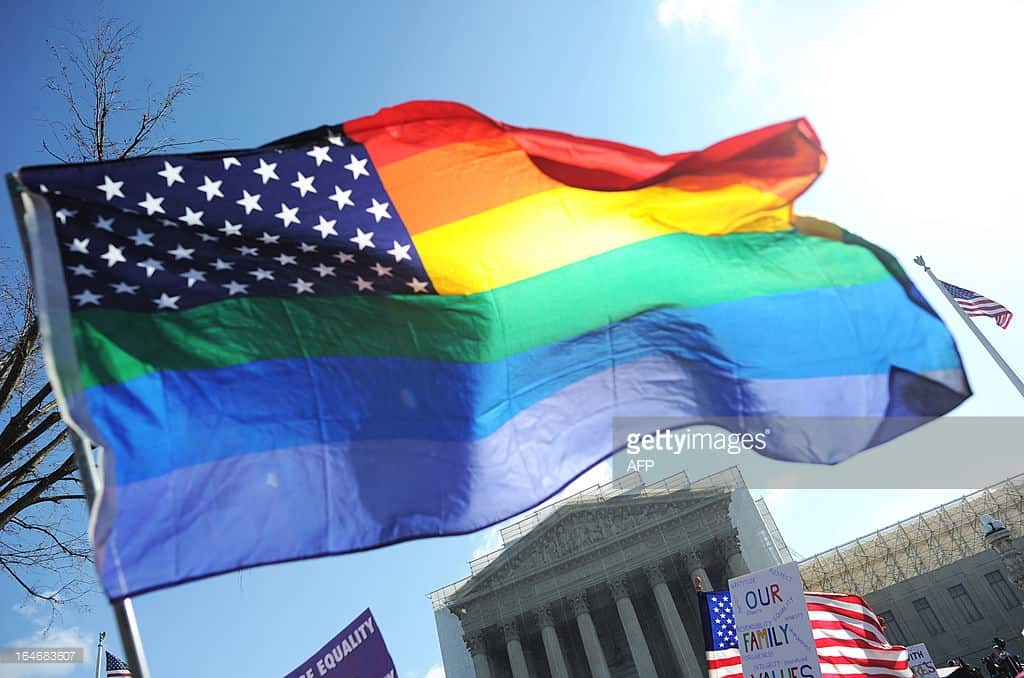A frequent piece of advice for new priests serving at weddings and funerals goes: “Do nothing to take away from their joy and never add to their grief.” It’s tough advice to follow when one group’s joy entails another side’s grief. Right now, many same-sex couples are celebrating the civil right to get married. At the same time, pundits and political candidates as well as our own church leaders are lamenting the death of democracy, states’ rights, and religious liberty.
Those of us loyal both to our church and to our LGBT family and friends are left in a difficult position. On the one hand, we want to proclaim the way, the truth, and the life – we want to witness to the radically transformative power of God’s love in the world – and we want to follow the church’s lead in that endeavor. On the other, we struggle to reconcile the church’s teaching with the suffering of our loved ones, or the church’s disappointment with our loved ones’ joy.
As America has become more welcoming to gay and lesbian people over the past decade in particular, more of our brothers and sisters, daughters and sons, friends and neighbors have come out. Many of us know people in same sex relationships of authentic love. We have come to understand that love, fidelity, and mutual commitment are worth being grateful for, regardless of the genders involved. We know the real hardships our loved ones suffer on account of not having the same rights as their heterosexual counterparts – whether through actual discrimination on the part of the government or through internalized perceptions of inferiority and worthlessness. We can, and do, celebrate the relief and affirmation they are experiencing right now.
For those who support it, yesterday’s ruling is against injustice and for equality. It is not, by any stretch of the imagination, against religion and for immorality. And there’s a danger if religious voices continue to react as if advocacy for same-sex marriage is in itself a form of religious persecution. It simply is not. The motivations don’t match religious persecution, and neither does the end result. To equate what many perceive as correcting an injustice with religious persecution is to invite that persecution. It also encourages the church to act out of fear, rather than out of love born from the subtle urging of the Holy Spirit – and only bad things can come of acting from a place of fear.
What “persecution” language really points to is the church’s marginalization. For decades a central power in American culture, the church now experiences itself being forced more and more to the sidelines. It has lost a number of its public policy fights. It has been discredited by the complicity of some in child abuse. Many young Catholics refuse to fill the pews. Even more Americans proudly identify as atheist or agnostic. And now, by losing the fight against same-sex marriage, the church in America is perceived to be even more marginalized.
One danger for those who are winning the culture wars is that they will take their victories to mean that the losers have nothing of value to share. That would be a real shame. It’s a mistake to reduce the Church’s position on same sex marriage to be against equality and for injustice. We hold that the Church really does have a crucial message for the world – the good news of Christ’s incarnation, death, and resurrection – the joy of the Gospel. More pertinent to yesterday’s ruling, the Church also has beautiful truths to share about God’s purpose for human beings and for their sexuality. Among those truths: there is an order to the world, and it is an order of love; we should rejoice in the splendor of human love and generativity; the family is the most important unit of society, and the church desperately wants to ensure what’s best for the family.
Those of us caught uncomfortably between our two loves – love for our Church and love for our LGBT brothers and sisters – therefore have a crucial role to play through our interaction with each. We ought, at the very least, help each side to value the good in the other. In an ideal world, we might even help each to dialogue with the other. But then, in an ideal world, we would not be caught between two loves. This is not an ideal world. In our world, at this moment, #LoveHurts.


